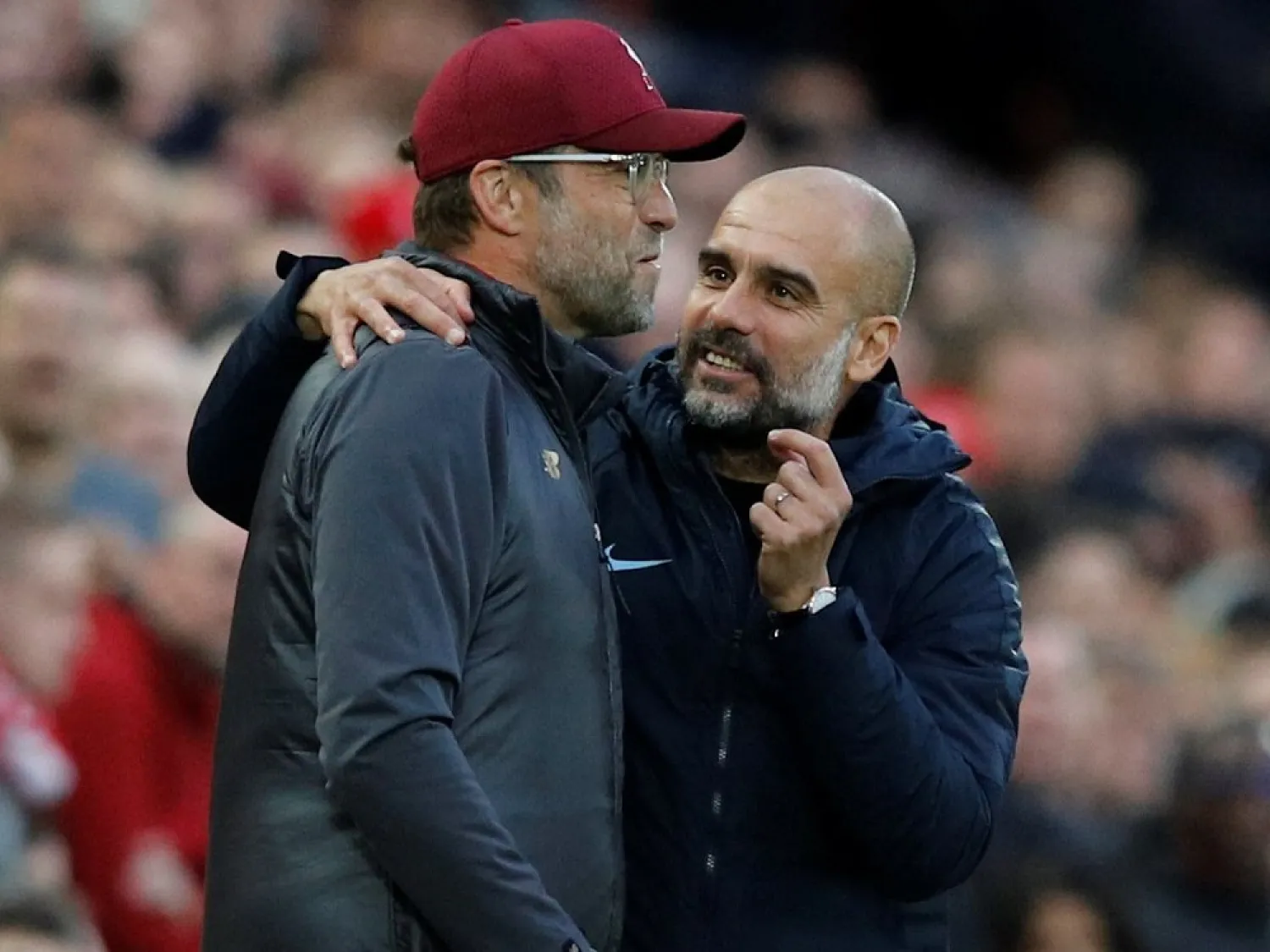Crunch time arrives in the Premier League at the weekend. It is only necessary to glance at the league table now or last season to see why games between Liverpool and Manchester City are important in terms of the title race. The managers have had a nibble at each other over diving and tactical fouling in the buildup and few attending Anfield on Sunday will doubt that one side or the other will end up champions, yet for a variety of reasons there seems a reluctance to accept this fixture as the biggest in English football.
Perhaps the most obvious one is that it is not yet the biggest rivalry in English football. When it was suggested to Jürgen Klopp last season that the City game might soon assume the significance of Liverpool’s ancient battle for supremacy with Manchester United, with all its perch-clearing braggadocio and title hauls running into double figures, even a German knew England well enough to dismiss the notion as rubbish.
It is not that Klopp feels the United rivalry particularly keenly – during his time in England he has never had to encounter a sustained threat from the direction of Old Trafford – it is more that like everyone else he doubts whether City and Liverpool have been going at it long enough to claim a place at the forefront of this country’s footballing culture.
Liverpool have not won a league title for 30 years, and in those circumstances Klopp is understandably wary of claiming his side are at the forefront of anything. City have been the team to beat for two impeccable campaigns now – last season they added a clean sweep of domestic trophies to their impressive 100-point total in 2017-18 – yet before the overseas money arrived they were even longer in the wilderness between titles, not to mention dropping as low as the third tier of English football.
So while this particular two-team hegemony is a new twist at the top of the Premier League, no one quite knows how long it will last and a certain amount of ill-feeling building up over time is what is required to produce memorable set pieces such as Arsenal’s Battle of the Buffet at Old Trafford or Rafa Benítez’s infamous list of facts.
Klopp and Pep Guardiola seem to quite like each other. On the evidence of previous meetings mutual admiration is more likely than mischief or mind games and to an extent the same is true of both sets of supporters. There is not much history of grudge or animosity between Liverpool and City fans, even if the former did give the visitors’ coach a rough ride when the teams met in the Champions League at Anfield two seasons ago. All too plainly their common dislike of Manchester United is greater than any rancorous mistrust of each other.
What might it take then, to turn the absorbing battle between the best two sides in the country into a fully fledged rivalry, something to be savored in the present and remembered down the years? It would undoubtedly help for a start were Guardiola and Klopp to stick around for several more seasons.
At the moment they are not perceived as permanent fixtures at their clubs; Guardiola especially is expected to continue moving around rather than putting in many more years at the Etihad Stadium and the idea that City and Liverpool have achieved their present levels of excellence by bringing in the best European managers available on a short-term basis is contributing to the feeling that this phase of English football might be a relatively transitory one.
Short-term is itself a relative construct – both managers have been at their clubs for three or four years already and could easily stay much longer – but it would be a considerable surprise were either to last half as long as Sir Alex Ferguson or Arsène Wenger. Nothing wrong with that, probably no one is going to manage that sort of longevity in the Premier League again, though as Klopp and Guardiola are undoubtedly wringing the utmost from their respective sets of players it follows they might be hard to replace without a drop in performance.
Without attempting to look too far into the future, it is not easy to see how City or Liverpool will be able to carry on seamlessly under different managers and the suspicion that succession problems lie ahead adds to the impression that these two sides may never have it quite so good again.
Before all that is worked out, however, another intriguing possibility could take shape. Supposing City were to win the Champions League this season, and Liverpool end their wait for a league title? This was a plausible scenario for much of last season and remains so this time.
Given City’s frustrations in Europe over the years and Liverpool’s overwhelming desire to see their title total ticking over again, both clubs would be highly satisfied with such an outcome. It is not a binary situation: either City or Liverpool could win both prizes, or end up with one between them or nothing at all, though there would be a pleasing symmetry should last season’s roles be reversed.
This mirror-image conclusion would not be a first for English football or even for Liverpool. Bob Paisley’s side won the European Cup in 1978 and the First Division title a year later, while Brian Clough’s Nottingham Forest were European champions in 1979 a season after picking up their first and only English title.
While that was not the most long-lasting of rivalries either, it was feisty at the time and the names will never be forgotten. If City and Liverpool can stage some sort of repeat, in the intensified era of the Premier League and the Champions League, it is probably safe to say that history will take due note.
The Guardian Sport









